'Classic-era prog’s Olympian pinnacle': Pink Floyd's 'Echoes' returns in their restored Pompeii concert film and as Nick Mason's band's vinyl hit | reviews, news & interviews
'Classic-era prog’s Olympian pinnacle': Pink Floyd's 'Echoes' returns in their restored Pompeii concert film and as Nick Mason's band's vinyl hit
'Classic-era prog’s Olympian pinnacle': Pink Floyd's 'Echoes' returns in their restored Pompeii concert film and as Nick Mason's band's vinyl hit
The band's legendary track from 1971 resurfaces not once, but twice

Pink Floyd’s “Echoes”, the ineffable progressive rock epic that occupies side two of 1971’s Meddle, is having a moment. Nick Mason’s Saucerful of Secrets released a sensational one-sided 12-inch vinyl version of the track on Record Store Day, April 12.
Then there’s the new Pompeii version. At the ruined Italian city’s re-excavated amphitheatre from 4 to 7 October 1971, Floyd were filmed playing “Echoes”, “Careful With That Axe, Eugene,” “A Saucerful of Secrets”, “One of These Days”, and “Set the Controls for the Heart of the Sun” for the concert film Pink Floyd: Live at Pompeii, which was released unsuccessfully the following September. (Pictured below: Rick Wright sings "Echoes" in Pompeii)
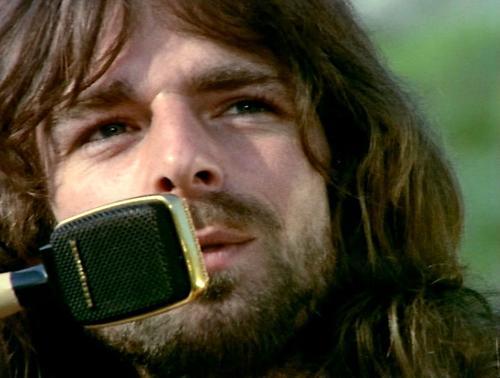 In the amphitheatre, Floyd performed “Echoes” at full length (24.56 minutes, in contrast with the 23.32-minutes studio recording). But it was split into two parts – careful with those scissors, Mr. Editor – to bookend the film. This was a shame since much of the song’s power resides in its gathering momentum. The tune might be compromised by its bifurcation, but its ecstatic crisis (at 18.31 minutes on Meddle; at 7.05 on the Pompeii edition) won’t be denied.
In the amphitheatre, Floyd performed “Echoes” at full length (24.56 minutes, in contrast with the 23.32-minutes studio recording). But it was split into two parts – careful with those scissors, Mr. Editor – to bookend the film. This was a shame since much of the song’s power resides in its gathering momentum. The tune might be compromised by its bifurcation, but its ecstatic crisis (at 18.31 minutes on Meddle; at 7.05 on the Pompeii edition) won’t be denied.
“Echoes” also starts and ends the new incarnation of the film, Pink Floyd at Pompeii – MCMLXXII, which – partially recut and digitally remastered in 4K – opened in cinemas on 24 April. Current prog luminary Steven Wilson, a lifelong Floyd fan, remixed the audio for the soundtrack and the accompanying album, which was released on 2 May.
Lest this should sound like so much geekery akin to that channeled by Floyd obsessives on Reddit, the case can be made that “Echoes” is classic-era prog’s Olympian pinnacle, or, at least, its most durable extended piece. Beauty is in the ear of the beholder, so others might stump for the jazz-prog behemoths on Soft Machine’s Third, Yes’s bellicose “The Gates of Delirium” from Relayer, Jethro Tull's colossal Oedipal opus "Thick as a Brick", or Mike Oldfield’s ethereal “Ommadawn”. Sorry, early Genesis fans, but “Supper’s Ready” doesn’t count because it’s seven songs in one.
Showcasing Floyd’s experimentalism at its post-psychedelic peak before Dark Side’s more accessible songs made the group a global phenomenon, “Echoes” builds a bridge between the enigmatic quasi-classical "Atom Heart Mother" suite (23.44 minutes) and "Shine on You Crazy Diamond Parts I-IX” (25.57 minutes), the anthemic lament for Syd Barrett that was itself divided to open and close Wish You Were Here. The Pompeii Echoes can be heard without interruption on the “Live at Pompeii” disc erroneously included on The Early Years (1965-72) box set and the stand-alone 1972: Obfusc/ation CD/DVD/Blu-ray. “Shine On…” is available as an uninterrupted live piece on the Wish You Were Here Experience Edition. (Pictured below: Dave Gilmour).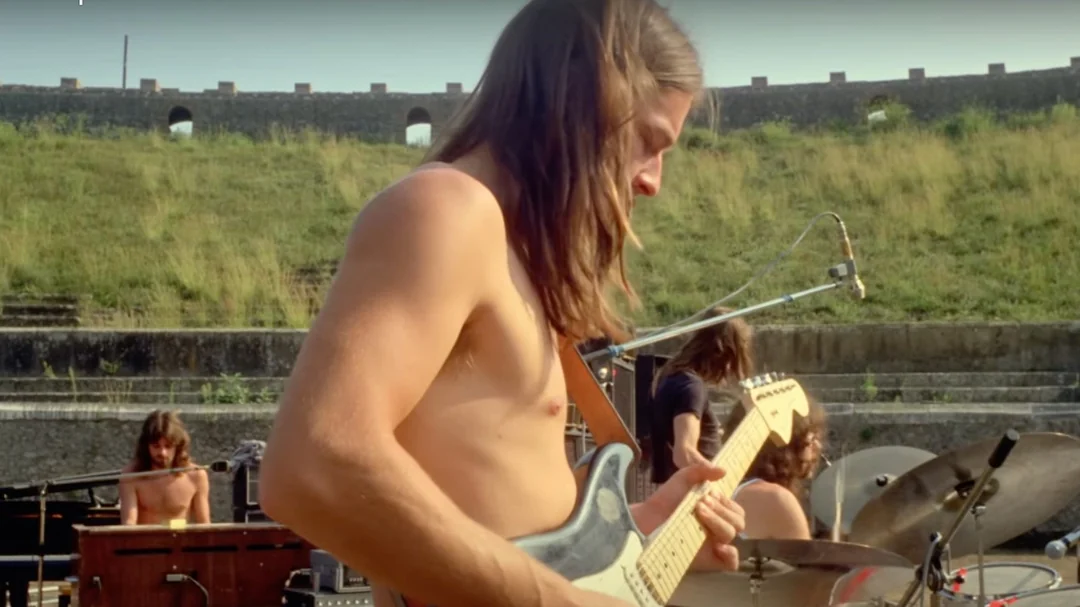 A song about evolution and human disconnection, “Echoes” was mainly composed by guitarist Dave Gilmour and keyboardist Rick Wright after the latter discovered the “ping” – played on a grand piano and modified via a speaker and a delay effects unit – that famously starts the piece. A sonar sound of a submarine, the note establishes "Echoes"’ underwater otherworldiness but also signals the moment when animal life began.
A song about evolution and human disconnection, “Echoes” was mainly composed by guitarist Dave Gilmour and keyboardist Rick Wright after the latter discovered the “ping” – played on a grand piano and modified via a speaker and a delay effects unit – that famously starts the piece. A sonar sound of a submarine, the note establishes "Echoes"’ underwater otherworldiness but also signals the moment when animal life began.
Wright and Gilmour mellifluously sing in harmony the song’s three verses and three choruses, the last verse and chorus coming near the end following two instrumental movements. The first line of the lyrics written by bassist and multi-instrumentalist Roger Waters goes: “Overhead the albatross hangs motionless upon the air”, a metaphor for isolation perhaps. The next couplet, "And deep between the rolling waves/ In labyrinths of coral caves”, recalls Astronomy Domine’s chilling lyric “Floating down/ The sounds resound around the icy waters underground”.
The first chorus describes the Cambrian explosion when, between 530 and 541 million years ago, the first complex organisms appeared, according to the fossil record: “And no one showed us to the land/ And no one knows the wheres or whys/But something stirs and something tries/ And starts to climb towards the light”. (Forgive the pedantry, but birds came after mammals and reptiles, so Waters used poetic licence when he introduced the albatross before the "something" that’s stirring.) The thought of the Darwinian miracle quickly devolves to that of two “strangers passing in the street” who “by chance do separate glances meet”. They wilfully fail to connect – alienation being a key Floydian theme.
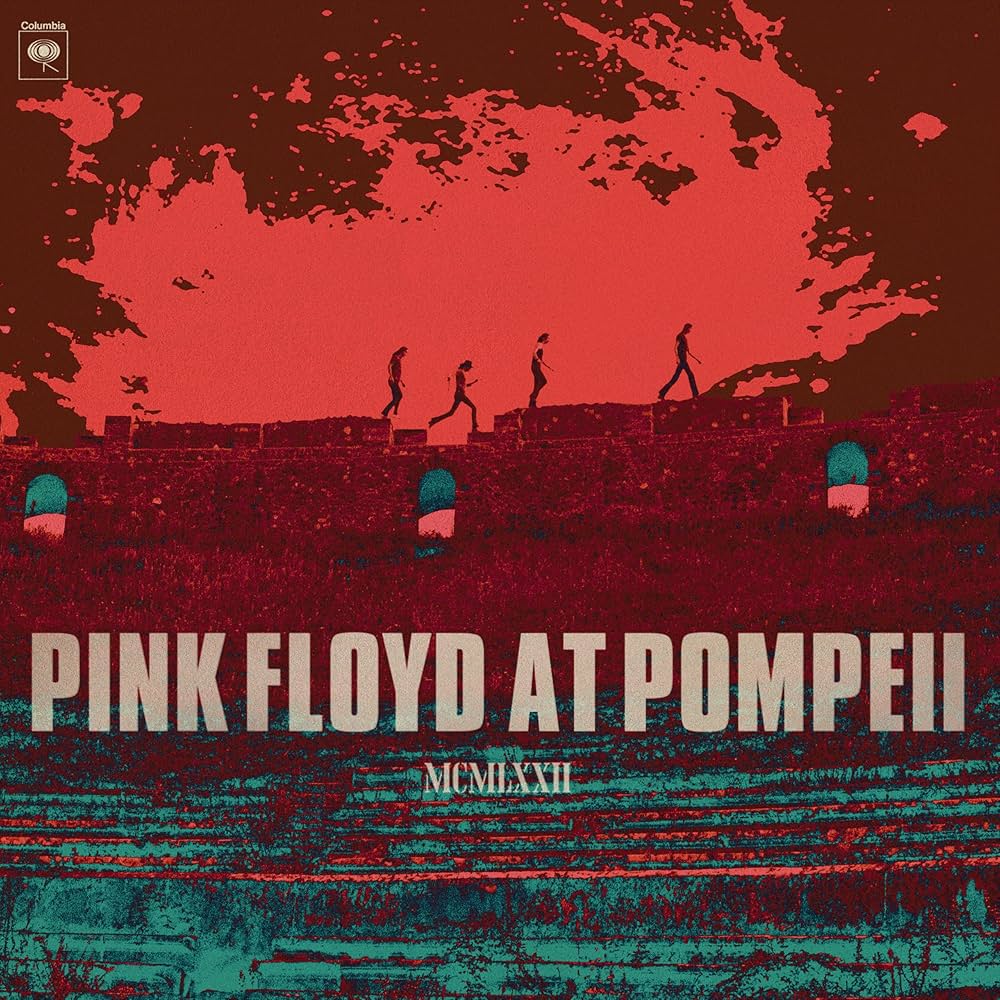 As these ideas percolate, Floyd get a heavy, wordless Floydian groove on – Wright’s chattering Farfisa organ dominant, Mason battering his kit, Gilmour’s guitar eventually scything through the jam like acetylene through tin, before the first of two mini-climaxes. Gilmour’s bluesy outro to this section yields to Wright’s electric piano, rising wind, and more pings.
As these ideas percolate, Floyd get a heavy, wordless Floydian groove on – Wright’s chattering Farfisa organ dominant, Mason battering his kit, Gilmour’s guitar eventually scything through the jam like acetylene through tin, before the first of two mini-climaxes. Gilmour’s bluesy outro to this section yields to Wright’s electric piano, rising wind, and more pings.
They presage the eerie third section, the subject of a subreddit debate on whether the eldritch shrieks that Gilmour stumbled on by plugging his guitar into the output of his wah-wah pedal (when playing “Embryo” in 1970) represent whale or seagull sounds.
Following Floyd’s successive commercial dumps of dozens of late Sixties and early Seventies concert recordings, beginning in December 2022, CDs of their shows have proliferated on the market, the sound quality of some of them wretched. On one barely acceptable rendition of “Echoes”, the cacophonous “whales or seagulls” passage – marine creatures croaking like rooks join the fray – is a dread-laden aural Walpurgisnacht.
The mellotron wave (probably made by Wright’s Farfisa organ) that washes away the chaos is accompanied by the insistent throb of Waters’s bass, played with a slide and through the delay unit, which becomes louder and moves to the foreground as Wright plays delicate melodic figures behind it: they are the sounds of a burgeoning. As the bass line intensifies, it steers the song to Gilmour’s searing crescendo, its life-dawning moment (or Vesuvian eruption) – Ravel’s Boléro-like in its climactic release.
The third verse initially suggests intimacy – it addresses a lover or spouse “inviting and inciting” the narrator to rise – a phrase nicked from John Lennon’s Beatles song “Across the Universe”. But the final chorus ends with yearning for someone far away: “And no one sings me lullabies/ And no one makes me close my eyes/ So I throw the windows wide/ And call to you across the sky.” (Did Ian Curtis have these words in mind when he wrote the line “Touching from a distance, further all the time” for Joy Division's "Transmission"?) "Echoes" slowly falls away after the second mini-climax, ending on a last ambiguous ping. What of E.M. Forster’s admonition to "only connect”. Whither life on earth?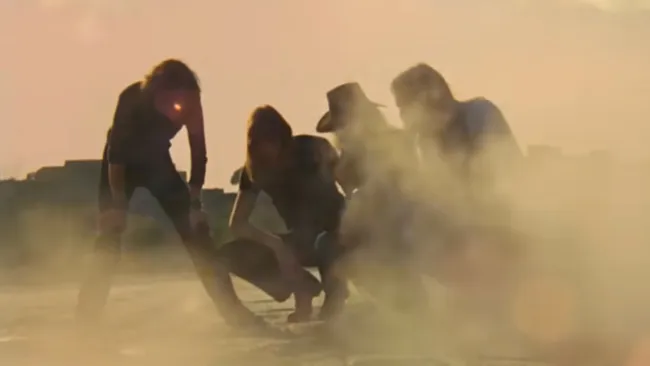 The obvious reason "Echoes" was split in two for the movie was the difficulty the director Adrian Maben had in finding enough appropriate images to match the music over 25 minutes. He said that he wanted to make “a kind of anti-Woodstock film, where no one was present and the music, the silence and the empty amphitheatre meant as much, if not more, than a crowd of thousands.”
The obvious reason "Echoes" was split in two for the movie was the difficulty the director Adrian Maben had in finding enough appropriate images to match the music over 25 minutes. He said that he wanted to make “a kind of anti-Woodstock film, where no one was present and the music, the silence and the empty amphitheatre meant as much, if not more, than a crowd of thousands.”
Yet the ancient arena, Ozymandias-like in its fallen grandeur, barely stoked his visual imagination, beyond inspiring him to superimpose over the band tumbling photos of sculpted Roman heads of ferocious or agonizing Gods and monsters.
In the 1972 film cut, the second part of “Echoes” featured shots of an Apollo spacecraft (an irrelevant nod to Floyd’s space rock aura) and computerised images, now horribly dated, of an idealised, pristine Pompeii and of the pyroclastic torrent that assailed it. Mercifully, this footage has been excised from the renovated film, which retains shots of bubbling volcanic mud and of the band members (pictured above) exploring the dust-clouded terrain at Boscoreale, just north of Pompeii, and climbing and running down a hill with uncharacteristic joy. Before Waters fell out with the others, they really must have been mates.
As a mounted camera tracks round the band as they play “Echoes", it pauses before their banked speakers and dwells idiotically on the words stencilled on them: “Pink Floyd, London”. An imprimatur signifying what exactly? The monumentality of rock stardom? When a narrow horizontal gap appears between the speakers, however, it offers a glimpse of darkened apertures on the crest of the amphitheatre. In that instant, with that accidental framing-within-the-frame, the millennia roll back and the film touches the years 70 BC–79 BCE, when the amphitheatre (pictured below right) was is use. Are these apertures the doorways the plebs poured through clutching their favourite gladiator rosettes and cups of posca, rushing to witness slaughter?
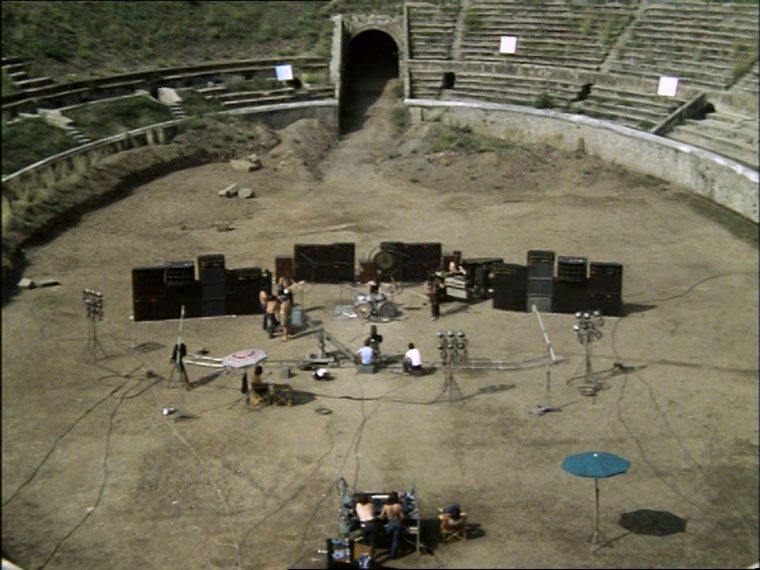 Nick Mason’s Saucerful of Secrets is the touring band he formed with Gary Kemp (guitar and lead vocals), Guy Pratt (bass and lead vocals), Dom Beken (keyboards) and Lee Harris (guitar) to play a wide repertoire of pre-Dark Side Floyd songs.
Nick Mason’s Saucerful of Secrets is the touring band he formed with Gary Kemp (guitar and lead vocals), Guy Pratt (bass and lead vocals), Dom Beken (keyboards) and Lee Harris (guitar) to play a wide repertoire of pre-Dark Side Floyd songs.
None they perform are intended to be facsimiles of the originals. Their “Echoes” veers between more languid and more ebullient than the Pompeii version: Beken's piano can sound more emphatic and his organ funkier than Wright's; and Harris and Kemp's riffing a tad bluesier than Gilmour's, but not always. The guitar runs are generally higher than Floyd's.
It's hard to tell with Pratt's voice, but Kemp's is reedier than either Wright's or Gilmour’s; in any case, Kemp carries the tune nicely. The eerie maelstrom – wind, whales or seagulls, croaking sea beasts – arrives abruptly, odd whistles and trills piping up from the briny depths to gentle it. The mellotron-ish surge here could be the sound of sunrise. A thunderclap, unheard on Floyd’s or Dave Gilmour’s bands' live takes on "Echoes", comes as a shock.
The ominous bass line jumps in and races. It thuds and scuds, auguring the menacing robotic one that precipitated Gilmour’s crescendo on “Raving and Drooling” before it became "Sheep" on the Animals album. When Beken plays Wright's numinous melodic figures – submerged on the Meddle and Pompeii "Echoes" – they take control of the song, triggering the spasming climactic clangour.
“Across the sky-y-y-y-y”, Kemp cries, following a bass and drums salvo in which Mason out-thunders his younger self. He and his boys thrash, grind, and jangle the song along, then let it ebb away. The wind gets up. The piano plinks and pings. You feel you’ve experienced something familiar yet strange – and it’s thrilling. “Echoes” is a gift that keeps on giving.
- Pink Floyd at Pompeii is in cinemas and available as a Blu-ray and DVD
- The "Echoes" (live) single by Nick Mason's Saucerful of Secrets can be purchased currently on US Amazon
- More new music on theartsdesk
rating
Explore topics
Share this article
The future of Arts Journalism
You can stop theartsdesk.com closing!
We urgently need financing to survive. Our fundraising drive has thus far raised £49,000 but we need to reach £100,000 or we will be forced to close. Please contribute here: https://gofund.me/c3f6033d
And if you can forward this information to anyone who might assist, we’d be grateful.

Subscribe to theartsdesk.com
Thank you for continuing to read our work on theartsdesk.com. For unlimited access to every article in its entirety, including our archive of more than 15,000 pieces, we're asking for £5 per month or £40 per year. We feel it's a very good deal, and hope you do too.
To take a subscription now simply click here.
And if you're looking for that extra gift for a friend or family member, why not treat them to a theartsdesk.com gift subscription?
more New music
 Album: Emma Smith - Bitter Orange
The award-winning jazz singer brings new life to some classic standards
Album: Emma Smith - Bitter Orange
The award-winning jazz singer brings new life to some classic standards
 BBC Proms: Anoushka Shankar 'Chapters' review - somehow, it worked
Shankar's starry presence brings focus to this orchestral version
BBC Proms: Anoushka Shankar 'Chapters' review - somehow, it worked
Shankar's starry presence brings focus to this orchestral version
 Album: Marissa Nadler - New Radiations
The Nashville-based singer-songwriter explores disconnection
Album: Marissa Nadler - New Radiations
The Nashville-based singer-songwriter explores disconnection
 Album: Rise Against - Ricochet
Have the US punk veterans finally run out of road?
Album: Rise Against - Ricochet
Have the US punk veterans finally run out of road?
 Music Reissues Weekly: The Final Solution - Just Like Gold
Despite their idiotic name, these San Francisco psychedelic pioneers sounded astonishing
Music Reissues Weekly: The Final Solution - Just Like Gold
Despite their idiotic name, these San Francisco psychedelic pioneers sounded astonishing
 Mogwai / Lankum, South Facing Festival review - rich atmospheres in a south London field
Two polished performances and an embarrassment of instruments
Mogwai / Lankum, South Facing Festival review - rich atmospheres in a south London field
Two polished performances and an embarrassment of instruments
 Album: Alison Goldfrapp - Flux
The synth diva in her comfort zone - maybe getting a little too comfortable, though
Album: Alison Goldfrapp - Flux
The synth diva in her comfort zone - maybe getting a little too comfortable, though
 Album: The Black Keys - No Rain, No Flowers
Ohio rockers' 13th album improves on recent material, but still below mainstream peak
Album: The Black Keys - No Rain, No Flowers
Ohio rockers' 13th album improves on recent material, but still below mainstream peak
 Wilderness Festival 2025 review - seriously delirious escapism
A curated collision of highbrow hedonism, surreal silliness and soulful connection
Wilderness Festival 2025 review - seriously delirious escapism
A curated collision of highbrow hedonism, surreal silliness and soulful connection
 Album: Ethel Cain - Willoughby Tucker, I'll Always Love You
Relatively straightforward songs from the Southern Gothic star - with the emphasis on 'relatively'
Album: Ethel Cain - Willoughby Tucker, I'll Always Love You
Relatively straightforward songs from the Southern Gothic star - with the emphasis on 'relatively'
 Album: Black Honey - Soak
South Coast band return with another set of catchy, confident indie-rockin'
Album: Black Honey - Soak
South Coast band return with another set of catchy, confident indie-rockin'
 Album: Molly Tuttle - So Long Little Miss Sunshine
The US bluegrass queen makes a sally into Swift-tinted pop-country stylings
Album: Molly Tuttle - So Long Little Miss Sunshine
The US bluegrass queen makes a sally into Swift-tinted pop-country stylings

Add comment